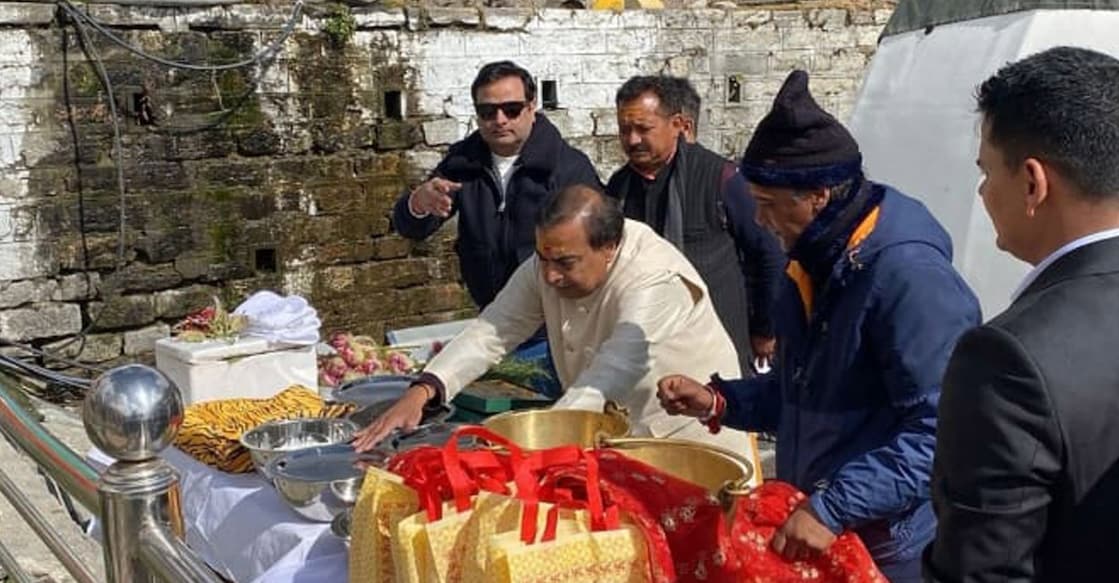Mukesh Ambani visits Badrinath, Kedarnath temples ahead of Diwali: The family's connection with the shrines

Mail This Article
The Ambani family is famously spiritual and is often seen spending much time participating in religious rituals and prayer. Last year, Mukesh Ambani visited Kerala's Guruvayur Temple and famously made a Rs 1.51 crore 'annadaanam' (offering of food) donation. On Sunday, Reliance Industries Chairman Mukesh Ambani reportedly travelled to Uttarakhand's Badrinath and Kedarnath temples ahead of Diwali. He was welcomed by the Badrinath - Kedarnath Temple Committee aka BKTC and as per reports, he even donated around Rs 5 crore to the shrines. Ambani offered prayers wearing a white kurta pyjama, paired with a beige jacket, surrounded by his security. Last year, Ambani visited the temple with his son Anant and daughter-in-law Radhika Merchant. Even in the previous years, they had conducted similar visits to the temple and made huge donations after performing puja at both temples. When he visited in 2018, Mukesh Ambani was accompanied by his son Akash and his fiancee Shloka, and they offered prayers at both temples after making their donations.
Significance of Badrinath and Kedarnath temples
The Badrinath and Kedarnath temples are two of the four sacred shrines that are part of India's Char Dham pilgrimage. The other two shrines in the pilgrimage are Yamunotri and Gangotri, which are in the Uttarkashi district of Uttarakhand. While the Badrinath temple is dedicated to Lord Vishnu and is situated in Garhwal Himalayas, Kedarnath is devoted to Shiva. It is also believed to have one of the twelve 'Jyotirlingas' or shrines dedicated to Shiva. The best time to visit both temples is from April to November when the weather is comfortable for trekking to the high-altitude temples.

